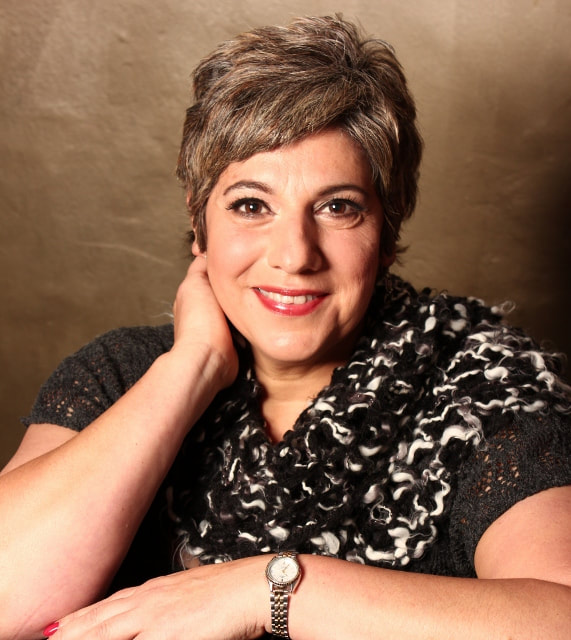|
What is the Menopause?
Being female means that hormone fluctuations are a part of our life. From acne and mood swings at puberty, morning sickness in pregnancy, post-natal depression and the emotional and physical roller coaster that is the menopause. Menopause literally mans the cessation of menses. It marks a physiological milestone in a woman’s life when her ovaries produce significantly less hormones and stop producing eggs. Gradually over a number of years, periods end and ovulation no longer occurs. It marks the middle of a woman’s natural life span. It is not a health condition or an illness, but a natural stage in every woman’s life, therefore does not require a cure. No need to medicate with a “pill for every ill”. It can occur anywhere from your late 30’s (although this would be considered an early menopause) to your mid 50’s. There is no universal menopause experience. It is highly individual. Symptoms can fluctuate wildly from having almost no effect on daily life to being severe and debilitating. It is part of the normal cycle of life and the more we approach it as such and accept it with grace, the better we can cope with whatever symptoms it throws up. Women are described as post-menopausal when they have gone one year without a menstrual period. What is happening to our bodies? The symptoms are normally very gradual and are triggered by a reduction of the amount of oestrogen produced by our bodies. As our ovaries are slowing down and producing less hormones, the pituitary gland tries to make up for this by sending more follicle stimulating hormone to the ovaries to encourage the production of oestrogen and progesterone. This slowing down of the ovaries and speeding up of the pituitary is responsible for a lot of the symptoms of menopause. Our hormones are in flux. These fluctuating hormones can leave women feeling unbalanced and victims of their changing bodies. It takes our bodies a little time to adjust to these changes, but once they do, balance is restored, symptoms disappear and we move on with the rest of our lives. Menopause does not last forever! There can be an increased risk of some health conditions after menopause. This is no cause for alarm, but just something to be aware of. For example, one of the functions of oestrogen is to prevent fat deposits building up in the arteries and this provides protection against coronary heart disease. When the production of oestrogen decreases there is a possibility of the development of heart disease. Oestrogen is also involved in the process of calcium absorption into the bones, therefore as oestrogen levels drop there will be an acceleration of bone density reduction, which can lead to osteoporosis. Oestrogen is like an oil that lubricates the body. The elixir of life! It is responsible for our femininity, our youthful glow, our thick, healthy hair. When we begin to lose it, we can experience stiff, aching joints and muscles, hair loss and dry skin. So where is the good news? Do we just turn into doubled up old crones and bemoan the fact that the best part of our life is over? Is it the end of something or could it possibly be the beginning of something wonderful? Yes, it is the end of our fertile life, but it is most certainly not the end of our creativity and productivity. Can we see it as a time of freedom, of new challenges, a time when our duties are lightened? We have less responsibility for childcare, care of elderly relatives, domestic duties and perhaps reduced work commitments. Is there something we can actively do to improve the quality of life? Can we become the wise women nature intends us to be? The resounding answer is yes. With a few simple dietary and lifestyle changes and of course, yoga, the menopause storm can be weathered. I am right in the middle of the menopause and I feel that I am dealing with the symptoms very well thanks to my yoga practice. My friends and family remark that I don’t seem menopausal at all. At a time when typically women can become unreasonable, moody and exhausted, this is refreshing. There is life before, during and after menopause and I know I am preaching to the converted here. We know from our knowledge of yoga that the practice is a two way street between the actions of the body affecting the mind and emotions and a positive mental attitude affecting the health and flexibility of our bodies. There is no more important time in a woman’s life to benefit from this knowledge. Yoga supports not just our bodies but our minds and emotions as we work through the biological changes taking place. The benefits of yoga during this time are substantial and regular practice helps to maintain physical, mental and emotional health. For my thesis I decided to look at some of the common symptoms of menopause and explore how a yoga practice involving asana, pranayama, meditation and relaxation can help alleviate those symptoms. It is my theory that a practice which includes all four yoga elements can tone the body, soothe the mind, alleviate anxiety and ease us through this natural transition with grace and confidence. More in Yoga and Menopause in our workshop Sunday 26th at 2.30 at Yoga Fitness Dun Laoghaire www.yogafitness.ie Comments are closed.
|
Claudia Gutierrez
Physical Therapist Yoga Teacher Fitness Instructor Life Coach Dreamer... [email protected] Categories
All
Yoga Fitness BlogI am Claudia Gutierrez, owner of Yoga Fitness, originally from Argentina and proudly Irish Citizen since 2012. Archives
November 2021
|

 RSS Feed
RSS Feed
